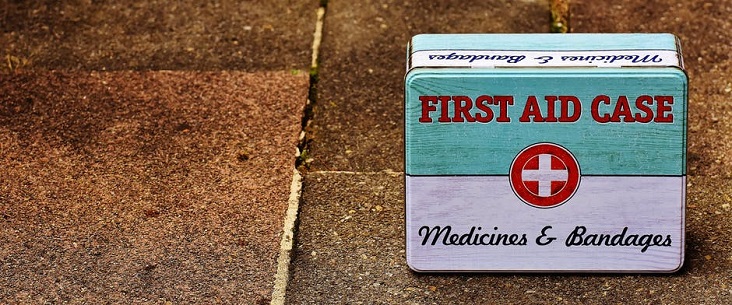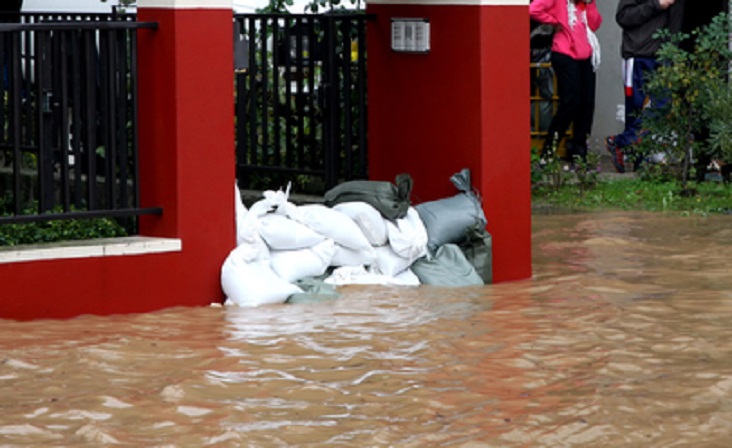 Before an Emergency Event:
Before an Emergency Event:
The best response is a well-articulated plan. Learning what to do during different types of emergencies —and developing a way to react— is one of the best things you can do to keep yourself ready for a disaster. Specifically, you’ll want to do each of the following long before any danger presents itself.
- Develop an Emergency Response Plan. You don’t want to be trying to figure out how to open your windows during an emergency event, when you may be panicked and not thinking clearly. Note all the possible exits from your apartment or rental, including windows that you can use if the doors are blocked. Gather important emergency numbers and put them in your phone —and on a sheet of paper somewhere readily accessible in your apartment. Discuss your plan with your roommates, if you have them, to make sure everyone in your unit is safe. If you don’t own a car, find a friend or acquaintance who would be willing to be your ride if you had to evacuate or go to urgent care for some reason.
- Put Together an Emergency Kit. If you live in an apartment, you probably don’t have a garage or shelter full of canned food and emergency equipment. Even so, you should put together a kit of necessary staples and keep it somewhere accessible in your rental unit. At the very least, have a flashlight, candles and matches, a battery-powered radio with backup batteries, a first-aid kit, and a three-day supply of canned food, water, and prescription medicine on hand to keep you safe in the event that you’re trapped in your building for a short time. A solar-powered phone charger, a little spare cash, and copies of important documents, like your passport and renters insurance, aren’t a bad idea either, if you have the space.

- Purchase Renter’s Insurance. If your rental company doesn’t already require it, it’s a good idea to invest in some renter’s insurance for your apartment. Insurance plans are fairly affordable, running between $15 to $30 a month, and will cover you in the event that your belongings are destroyed. Most plans also help pay for accommodations, like the cost to rent a hotel room or lease temporary housing, if your apartment is uninhabitable after an emergency event.
During an Emergency:
It’s hard to know what to do when a disaster is imminent, but a good plan is definitely the first step. When an emergency event strikes, you should always use your common sense to stay safe and think about your next move carefully, but in general, here’s what experts recommend you do:- Listen for news of evacuation. Evacuations may seem like an extreme measure, but they’re actually more common than most people realize, according to FEMA. In the event of an imminent disaster, local officials will issue a call through the radio and local television stations. Many jurisdictions also send Wireless Emergency Alerts out that may be received over WiFi-connected devices, like your smart phone, but it’s wise to have a battery-powered radio on hand in case you lose power or wireless signals. Always evacuate when officials tell you to do so —you’re better off safe than sorry!
- Safety is your first priority. If a disaster occurs, your first priority should be staying safe. Each kind of event is different and presents different challenges and hazards. For instance, you’d react differently to a house fire than you would to a hurricane. The Red Cross has a great library of resources for every kind of disaster you could think of, so familiarizing yourself with these will help you in the event of a crisis. Your first move should always be to make sure you are safe, then attend to roommates and family members. If your living area is unsafe, you need to get out to a less hazardous location. If you’re undergoing a natural disaster, however, your best response is to batten down the hatches and shelter-in-place, unless officials tell you it’s time to evacuate to an alternative location. If you decide to stay in your apartment, make sure to lock the doors, and turn off the heating and air conditioning if the air quality outside is questionable. Grab your emergency kit and stay aware for whatever comes next.
- Prepare for the aftermath. Once you’re sure that you’re safe and that it’s okay to stay in your apartment for the short-term, you may want to venture out to check on your neighbors, or alert your family members that you’re okay. Another thing you can do to help is to call the authorities and report downed power lines, demolished buildings, or any other situations you can see from your apartment. Never go out to investigate these areas more closely by yourself. That’s a job for the authorities! As well, keep well informed about the best emergency food options you can have on hand.
 Generally, the best thing you can do is to prepare for emergencies ahead of time. Authorities are often so overwhelmed during a large crisis that they may not be able to arrive in your area right away. You’ll have to rely on your own knowledge, keeping your wits about you and taking charge of the situation yourself in order to stay safe. Hopefully you never have to experience a major emergency in your renting experience, but if you do, you’ll know the right way to approach any crisis that nature can throw at you!
Generally, the best thing you can do is to prepare for emergencies ahead of time. Authorities are often so overwhelmed during a large crisis that they may not be able to arrive in your area right away. You’ll have to rely on your own knowledge, keeping your wits about you and taking charge of the situation yourself in order to stay safe. Hopefully you never have to experience a major emergency in your renting experience, but if you do, you’ll know the right way to approach any crisis that nature can throw at you!



